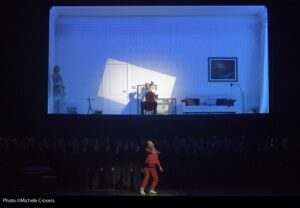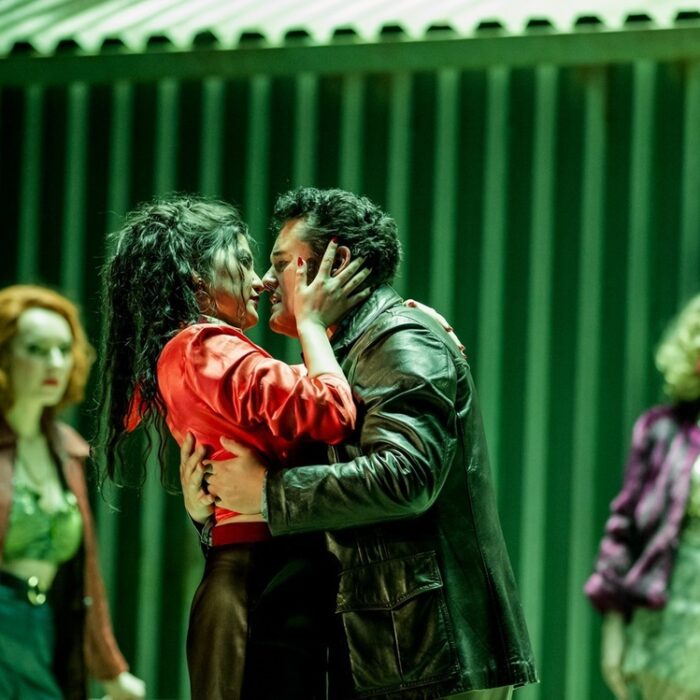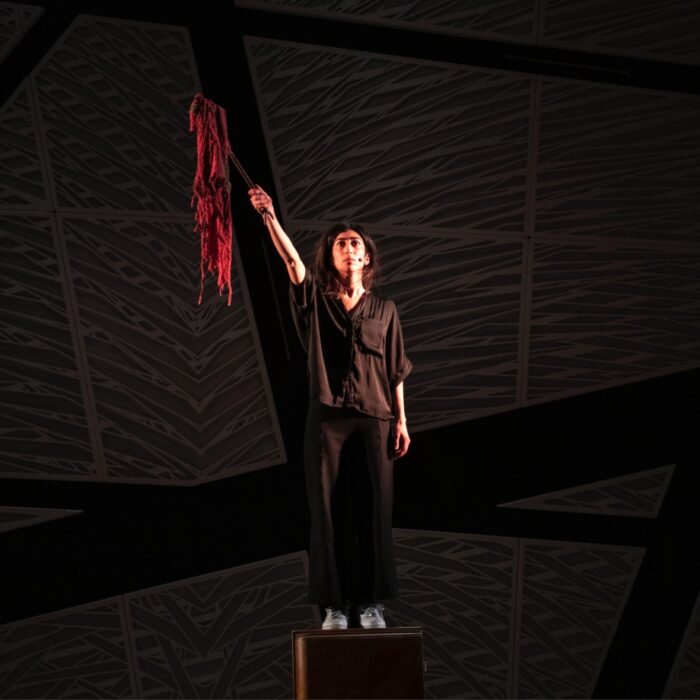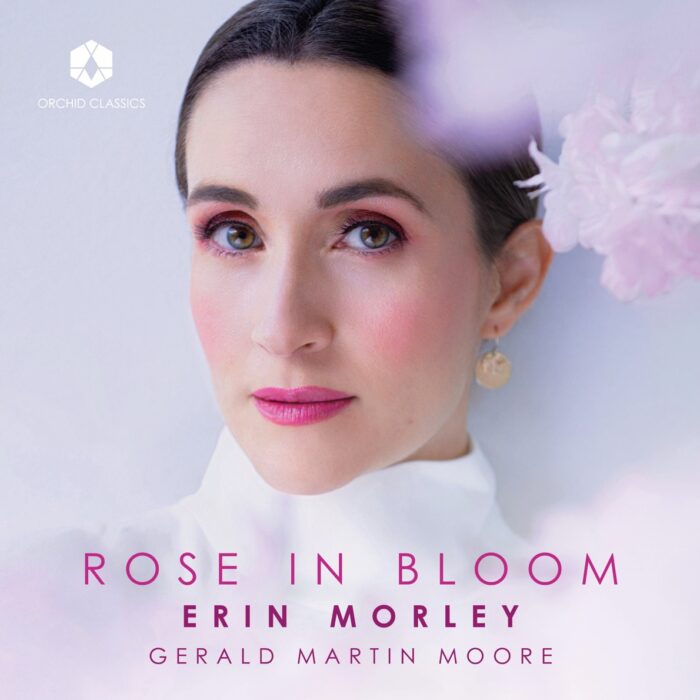
Teatro La Fenice Review 2024: Mefistofele
By João Marcos CopertinoAfter leaving the premiere of La Fenice’s production of “Mefistofele,” I dried two little tears from my eyes and, in a burst of emotion, was possessed by one thought: how underrated Boito is. Usually relegated merely to the place of the fanciest of Verdi’s librettists, Boito was much more. His works extend from a few musical pieces to many (untranslated or poorly edited) writings. Nicola Luisotti, Moshe Leiser, Patrice Caurier, and Alex Esposito proved how complex Boito’s ideas can be, and how skillful he was in his many crafts.
Leiser and Caurier’s scenic proposal embraces the allegorical aspect of Boito’s work. “Mefistofele” is an allegory about the ethical dilemmas of being possessed by pleasure—especially the pleasure of admiring art. The idea is that there is something satanic in aesthetic enjoyment because that enjoyment belongs to the flesh. For a certain austere cast of mind, this sensual and sexual enticement must be satanic. The problem is that music, while carnal, also elevates us, making us reach toward God and eternity. So, how bad can pleasure actually be?
The action starts with a gestural moment alluding to music’s mythological genesis. Mephistopheles hands the score—in a red hardcover—to the conductor in the orchestral pit. A certain Christian tradition preaches that Lucifer, prior to his fall, was the head musician of the Heavens—perhaps even the creator of music itself. Such an origin story jeopardizes art and its appreciation. On the one hand, Music—and thus Opera—has a profane, even a demonic, birth. Its pleasures might lead to eternal damnation. On the other hand, the pleasure of music can give us some sense of elevation and redemption. It is through music that we rejoice in the Lord, and it is through music that we find a gaiety that, according to Luther, made the Devil tremble in fear and anger.
The production’s decision to have Mephistopheles hand the score to the conductor not only reiterates that ambivalence, but also stresses the quintessential Christian aspect of the Faustian myth. Along with Don Juan, Faustus is perhaps the literary myth of modernity. Birthed way after the decay of the Olympian gods, their links to a Christian dominated world is evident: in a society in which we are taught to avoid pleasure on Earth, to defer it for and until the afterlife, hedonism is perhaps the biggest act of rebellion. Their decision to pursue earthly delights is, in essence, satanic—as, therefore is our decision to indulge ourselves by attending the Opera for a few hours of good music.
In each act, the production shows different incarnations of fleshy pleasure and how they are, in their own way, part of the devilish nature of entertainment. In the first act, the park scene takes place in a soccer stadium, with loud voices cheering a Champion’s League match in contemporary Frankfurt; in the second act, a garden with all its sexuality as part of the anthological Witchts Sabbath scene (“Ecco il mondo” onwards); while the final moments of the last act turn, in more redemptive terms, to a reflection on the pleasures of Opera itself. Faustus, travelling through this garden of earthly delights, seems to mature, creating a belief in beauty itself.
The apotheosis of such a journey is the understanding that Faustus’s salvation does not come through the denial of music and pleasure, but through a regained understanding of how to enjoy music. Instead of deflowering the ideal figures of his affection (Elena, Margherita), he joins them in the making of an artistic ideal—through labor and self-resignation. The opera ends with Faustus in a room, by himself, practicing a muted cello (perhaps a Bach suite?), while he is elevated to the heavens, and we delight in the chorus’s chanting. In that moment, I knew I was going to cry. Not tears of sorrow, but tears at the amazement of beauty —like in the final shot of Visconti’s “Death in Venice,” when we hear the grand music of Mahler as we gaze in perplexity towards an Apollonian ideal. Or when Moses, in the Sinai, is amazed by merely being able to glance at the back of Lord in all his almighty magnitude.
It might be jarring to by readers for me to say, after so many compliments, that La Fenice’s staging is theatrically stunning without ever being aesthetic. Its scenarios enjoy a good use of video projections that are, at best, a bit démodé. The staging works well precisely because the visuality is composed in the name of the storytelling. It is succinct theater. All objects and images are meant to mean something, but they are more about the narrative than about telling a visual story.
In that regard, Luisotti’s reading of the score is extremely philosophical and narrative. So far, it was the best performance by the La Fenice orchestra and chorus that I have heard this year. The sound was brilliant, big, and—most importantly—thought-provoking. The loudness of the orchestra never boiled the singer’s voices; the instruments were heard as a group, but also as soloists when necessary. While the prologue and the epilogue were introspective narratives, the second and the third act worked as allegories, almost as an imitation of music itself. It was very interesting to see.
So far, I have neglected to stress the importance of Alex Esposito for the success of this production. There would be no opera if it were not for him—and this is not an overstatement. It is not that he was perfect—there were small things here and there—, but the opera worked only when we could see in his body his commitment to the work. It was also evident that Mephistopheles imposed on him an intellectual and theatrical challenge of another magnitude.
Basses and Barytons are accustomed to playing villains—in fact, some have retired with the money they made only singing Scarpias—, but Mephisto is a different story. Beyond great vocal challenges, the embodying the fiend demands a commitment to a lack of shame or guilt that also has to be made extremely attractive. In that regard, it is not that the singer must be good-looking—though often they are—, but there must be a magnetic self-reliance, a capacity to capture one’s attention in every single moment: charisma, or in good Portuguese, “borogodó.” Any minimal gestural trepidation, self-doubt, or minimal clumsiness imperils the characterization of the devil.
Esposito, most of the time, seemed to always be up to go a step further in the evil. With that, his musical phrasing became even more compelling. His voice resonated well, with much uniformity of the registers. He prized a certain vocal quality above all else, managing to sing in a diverse range of dynamics with a similar sound—instead of making the piano sounds more airy or less focused.
Not necessarily the most natural of actors, Esposito sought vocal and scenic cohesion to his character. Even though he begins the opera silently on the stage, it seemed that he was always ready to sing, as if, having found the voice of the devil, the rest would be very easy for him. It was interesting to see. I must say that the second act’s luxurious collusion could have been even more scary—but the responsibility for that lies more with the chorus than with him. His participation, especially in the prologue, was beyond remarkable.
While Esposito was a source of charisma and appeal, Piero Pretti’s Faustus was his theatrical antithesis. While his voice has a sharpness that almost rends the orchestra apart—with subtle vibrato and a certain guttural quality—, his gestures were shy. Even with Faustus’s newly acquired handsomeness, Pretti preserved the character’s clumsiness, representing for us a man uncertain of his charms, and even uncertain of himself. The opera worked as a journey toward maturity, and progressively the audience was won over by his savviness.
In “Forma Ideal,” Pretti was a highlight. Standing still in the middle of the stage, he phrased well, sustaining the high notes in excellent fashion, avoiding a wobbly sound. The phrasing was admirable. In the end of the act, he dropped sand from his right hand, as a metaphor of the end of a certain idealism, with a discretion that will make it hard to forget.
Maria Agresta did not have her best night singing Margherita. The soprano, one of the ultimate Italian prima donna, struggled a lot in singing most notes in tune. In “L’altra notte,” her voice sounded heavier than it should. Such vocal weight hindered her from a more subtle coloratura or from reaching the high notes. The duo with Faust at the end of the third act was significantly better. The singer aimed to sing softer, respecting Pretti’s tempo and dynamic. By any measure, the soprano is an artist.
Maria Teresa Leva, another usually very interesting singer, might have been a bit too aloof for the role of Elena. In her case, her voice, rich in vibrato, suffered a bit in shaping Elena’s musical phrases; some vowels resonated way more than others, deforming the words too much, and making the phrase direction less clear. It might have been an opening-night spell, though. In any case, the singer was perfectly aware of the scenic demands made on her, especially when graciously sporting the most exuberant dress of the night.
Enrico Casari and Kamelia Kader sang their parts with much dignity.
Special attention must be given to the Le Fenice choir which gave one of their most interesting performances. I often mention how special Italian Opera choruses are, and La Fenice has this appeal. The scenes in the Prologue and Epilogue were extremely well-prepared and rehearsed. There was a sonic aliveness that is rare to hear. I believe that the dark scenarios only modulated such amazing vocal work. Their voices, often acousmatic, increased the philosophical experience of what was, to me, one of the highlights of the year.


